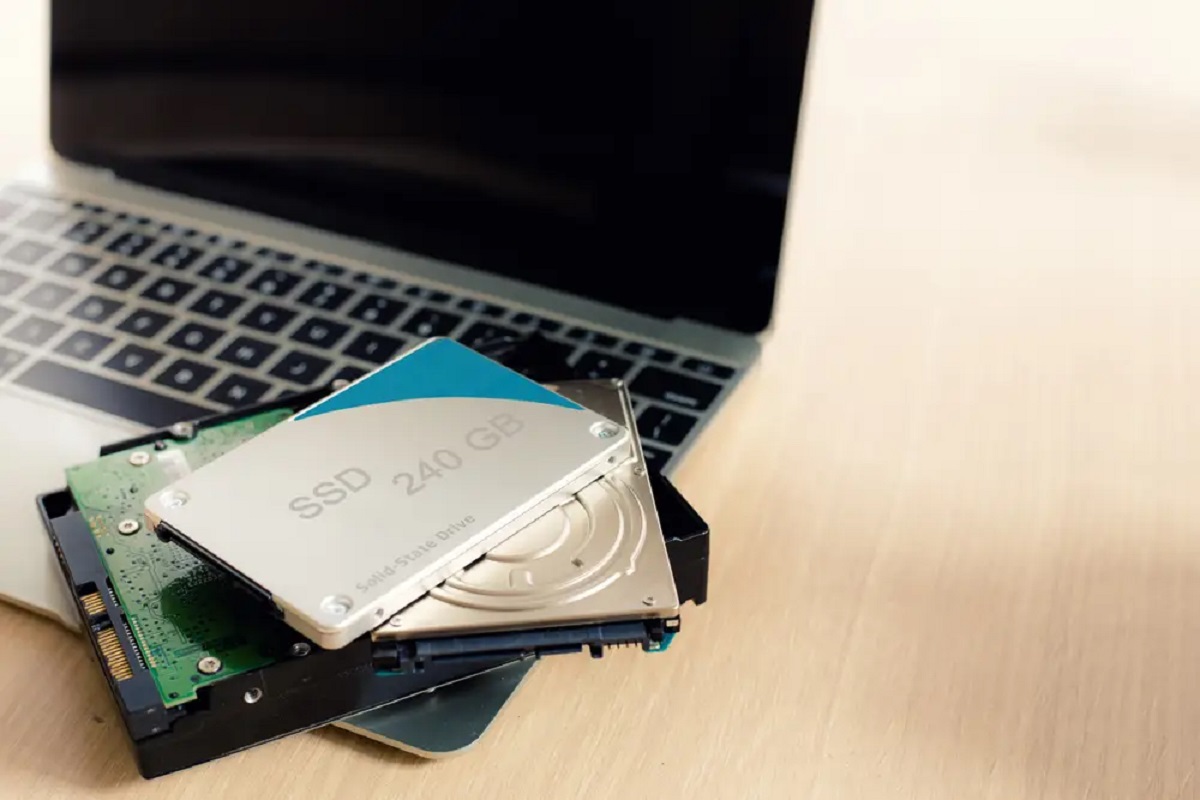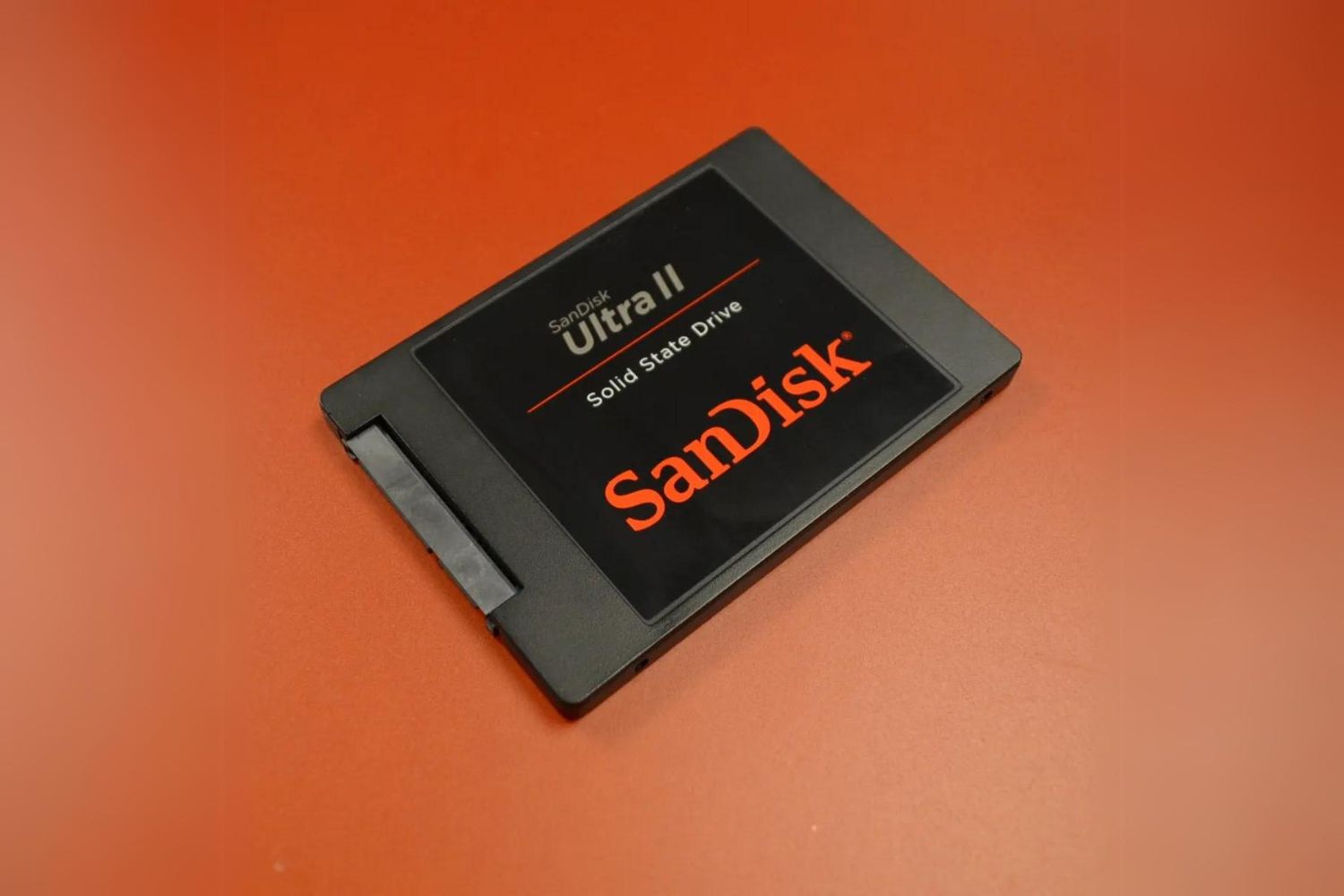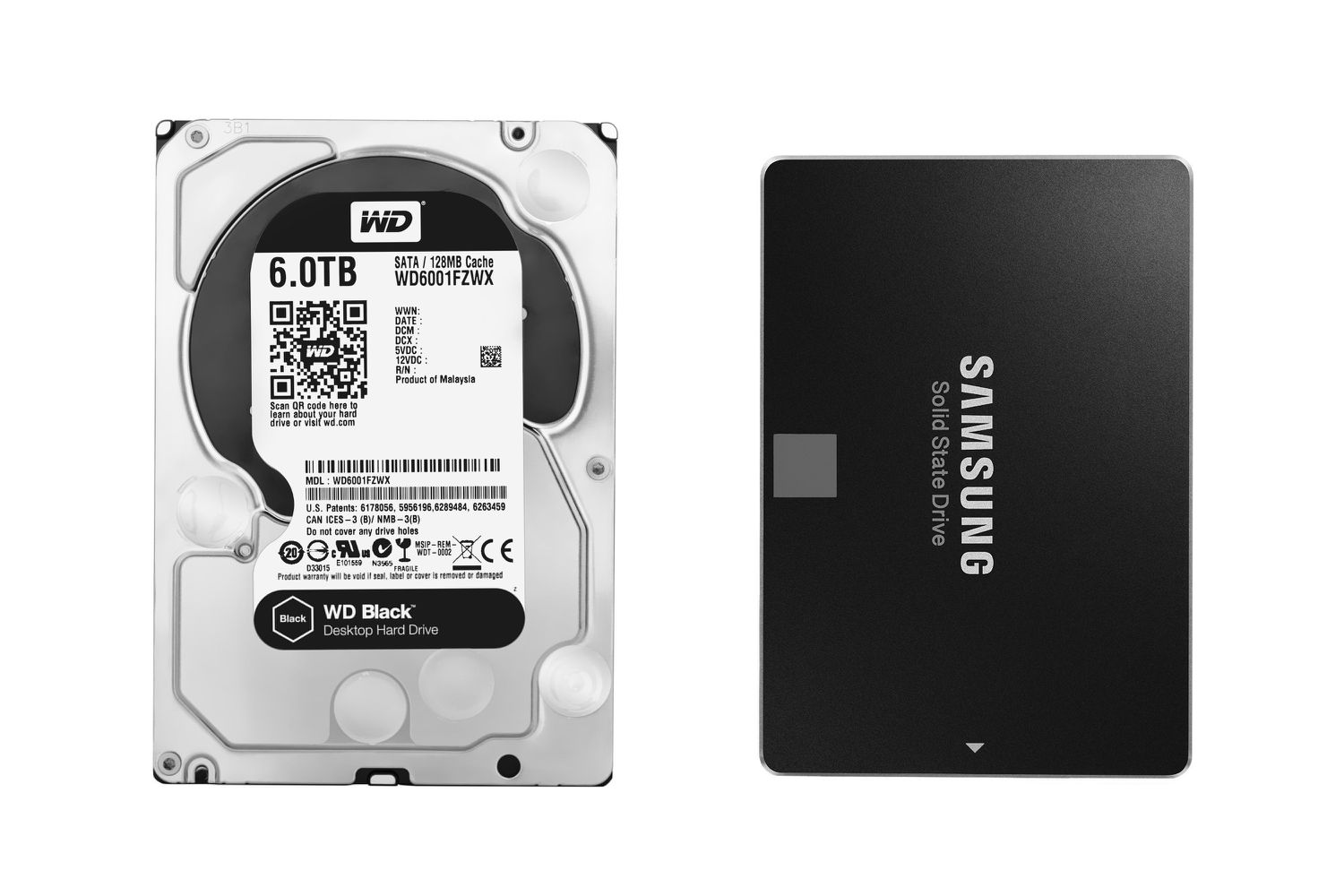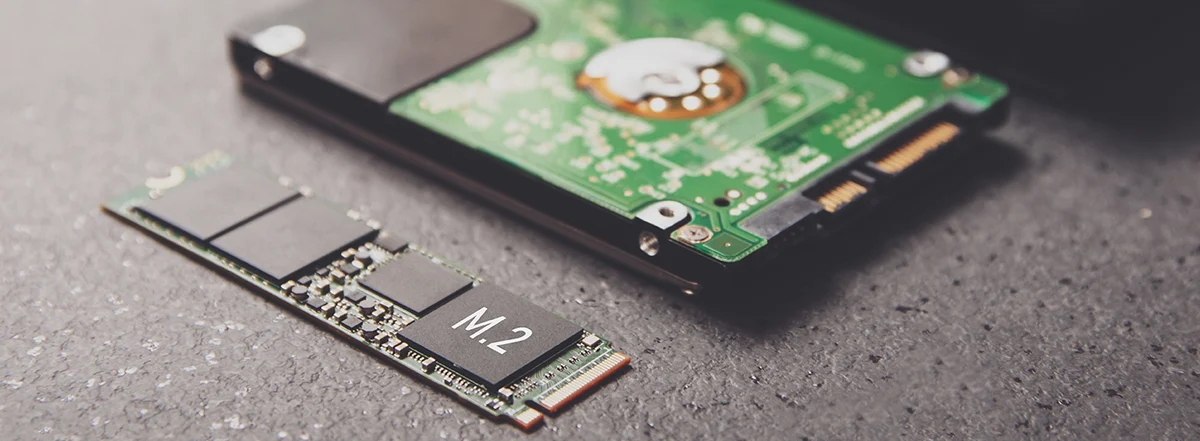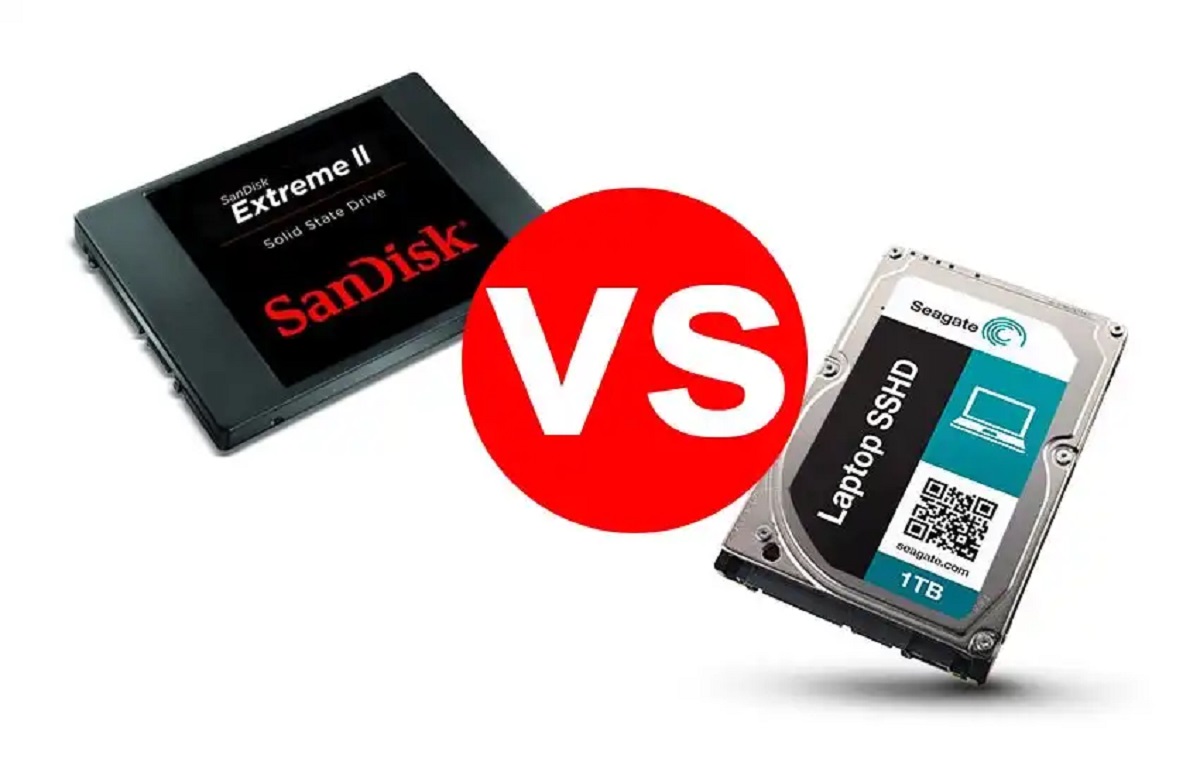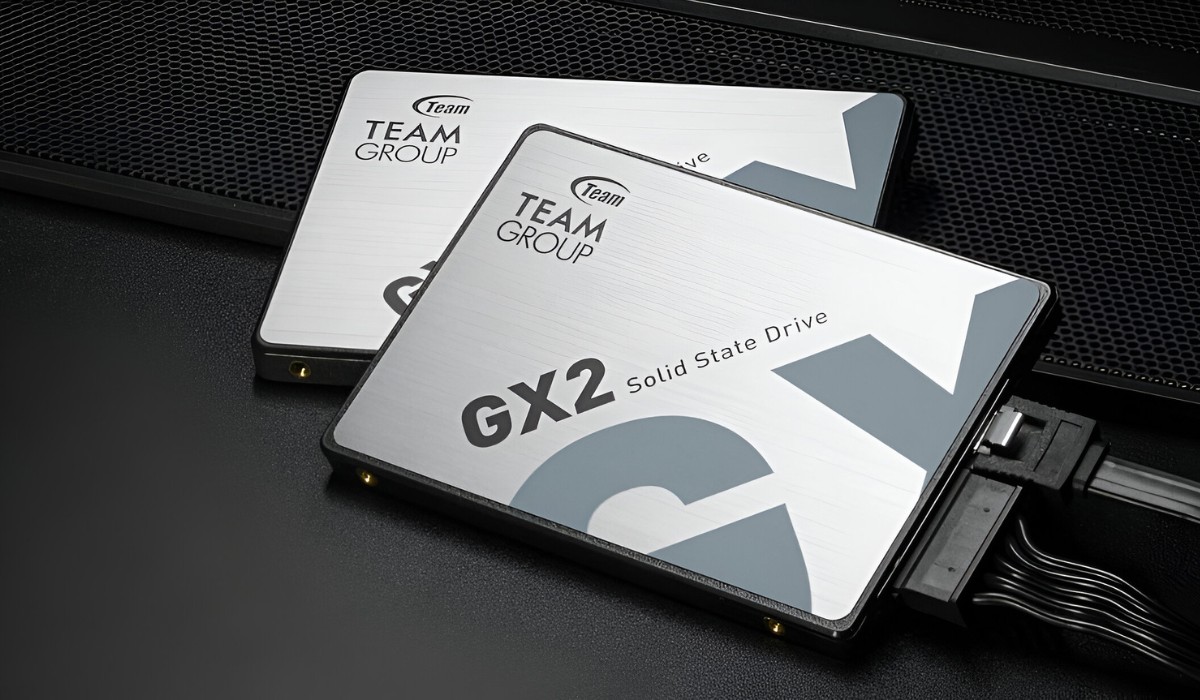Introduction
Welcome to our comprehensive guide on solid state drives (SSDs)! As technology continues to advance, traditional hard drives are being surpassed by the faster and more reliable SSDs in the world of data storage. Whether you’re a professional looking for faster boot times and data transfer speeds, a gamer seeking improved loading times, or simply an average user in need of a reliable storage solution, SSDs have become an essential component for enhancing performance on your computer.
In this article, we will explore the benefits of using a solid state drive, discuss factors to consider when choosing one, and provide recommendations for the top 5 SSDs currently available on the market. Additionally, we will compare their features and performance, evaluate their pricing and value for money, and take into account user reviews and experiences.
By the end of this guide, you will have a clear understanding of what a solid state drive is, why it is a superior option to traditional hard drives, and which SSDs are the best choices for your specific needs and budget.
So, let’s dive in and discover the world of solid state drives.
What is a Solid State Drive (SSD)?
A solid state drive (SSD) is a type of data storage device that uses flash memory to store and retrieve data. Unlike traditional hard drives which rely on spinning disks and mechanical read/write heads, SSDs have no moving parts. Instead, they use integrated circuits to store data persistently, resulting in faster access times and improved overall performance.
SSDs come in various form factors, such as 2.5-inch drives for laptops and desktop computers, and smaller M.2 drives for ultrabooks and compact PCs. They connect to the computer via interfaces like SATA (Serial Advanced Technology Attachment) or the faster NVMe (Non-Volatile Memory Express) protocol, enabling high-speed data transfer rates.
One of the key advantages of SSDs is their incredible speed. They offer significantly faster boot times and application launching, which means you can start working on your computer or enjoy your favorite games without delay. SSDs also excel in read and write operations, allowing for faster file transfers, and smooth multitasking.
Another benefit of SSDs is their durability and reliability. Since there are no moving parts, they are more resistant to shock, vibration, and physical damage, making them ideal for use in portable devices like laptops or external hard drives. They also consume less power, generating less heat, which contributes to longer battery life for laptops and reduced energy consumption for desktops.
Furthermore, SSDs are silent during operation, as there are no spinning disks or noisy read/write heads. This makes them perfect for users who require a quiet computing environment, such as content creators, professionals working in noise-sensitive environments, or those who simply value a peaceful work or gaming experience.
In recent years, the cost of SSDs has become more affordable, allowing them to become a mainstream option for both personal and professional use. While they are still generally more expensive than traditional hard drives in terms of cost per gigabyte, the added benefits that SSDs offer in terms of speed and performance make them a worthwhile investment for many users.
In the next section, we will delve into the various benefits of using a solid state drive and explore why it is becoming the preferred choice for storage solutions in today’s technology-driven world.
Benefits of Using a Solid State Drive
There are several compelling benefits to using a solid state drive (SSD) over a traditional hard drive. Let’s explore some of the key advantages:
- Speed and Performance: SSDs are significantly faster than traditional hard drives. They offer faster boot times, quicker application launches, and snappy response times, resulting in a smoother and more efficient computing experience.
- Reliability and Durability: With no moving parts, SSDs are less prone to mechanical failure, making them more reliable and durable. They are less susceptible to damage from bumps, drops, and vibrations, making them ideal for portable devices.
- Energy Efficiency: SSDs consume less power compared to traditional hard drives. This not only extends battery life for laptops but also reduces energy consumption for desktop computers, contributing to cost savings over time.
- Noiseless Operation: Unlike traditional hard drives with spinning disks and read/write heads, SSDs operate silently. This makes them perfect for users who require a quiet environment, whether it’s in the office or at home.
- Data Transfer Speed: SSDs excel in read and write speeds, allowing for faster file transfers, improved multitasking, and reduced loading times in applications and games. This can greatly enhance productivity and user experience.
- Compact Design: SSDs come in various form factors, including the compact M.2 drives. This makes them suitable for slim laptops and space-constrained systems, enabling users to take advantage of faster storage in smaller devices.
- Improved Gaming Experience: Gamers can benefit greatly from using SSDs. They offer faster game load times, reduced texture pop-in, and smoother gameplay, ensuring an immersive and lag-free gaming experience.
While SSDs are generally more expensive than traditional hard drives in terms of cost per gigabyte, the added benefits they bring in terms of speed, reliability, and overall performance make them a worthwhile investment for many users. The lower failure rate and longer lifespan of SSDs can also result in cost savings in the long run.
Next, we will discuss the factors you should consider when choosing a solid state drive to ensure that you find the best option to meet your specific requirements and budget.
Factors to Consider When Choosing a Solid State Drive
When selecting a solid state drive (SSD), there are several important factors to consider to ensure that you choose the right one for your needs:
- Capacity: Determine the amount of storage space you require. SSDs are available in various capacities, ranging from 120GB to several terabytes. Consider your usage patterns and the type of files you’ll be storing to determine the appropriate capacity for your needs.
- Speed and Performance: Look for SSDs with high read and write speeds to ensure fast data transfer rates. Consider the SSD’s interface, with NVMe offering faster performance than SATA. Additionally, check for the SSD’s sequential read and write speeds, which can give you an idea of how quickly it can load files and applications.
- Reliability and Endurance: Pay attention to the SSD’s endurance rating, which indicates how long it will last under normal usage. Look for SSDs with higher endurance ratings for better longevity. Consider the manufacturer’s warranty as well, as it can provide peace of mind regarding the reliability of the drive.
- Form Factor: Determine the form factor that will fit your device. SSDs come in various form factors, such as 2.5-inch drives or M.2 drives. Ensure that the SSD you choose is compatible with your system or device.
- Compatibility: Check if the SSD is compatible with your computer’s motherboard and operating system. Ensure that it supports the appropriate interface, such as SATA or NVMe, and that it is compatible with the version of your operating system.
- Price: Consider your budget and find a balance between capacity, speed, and price. SSDs with larger capacities and higher performance are generally more expensive. Determine your needs and budget to select the SSD that offers the best value for money.
- User Reviews and Ratings: Read user reviews and ratings to get insights into the SSD’s performance, reliability, and user experiences. This can provide valuable information beyond just technical specifications.
By considering these factors, you can make an informed decision when choosing a solid state drive that meets your requirements and provides the best performance and value for your investment. In the next section, we will reveal our top 5 SSD recommendations on the current market.
Top 5 Solid State Drives on the Market
With numerous solid state drives (SSDs) available on the market, it can be overwhelming to choose the right one for your needs. To help you, we have researched and compiled a list of our top 5 SSD recommendations:
- Samsung 970 EVO Plus: The Samsung 970 EVO Plus is a high-performance NVMe SSD that offers impressive read and write speeds. It comes in various capacities, ranging from 250GB to 2TB, and offers excellent endurance and reliability. The 970 EVO Plus is known for its consistent performance, making it ideal for demanding tasks and gaming.
- Western Digital Black SN850: The Western Digital Black SN850 is another powerful NVMe SSD with lightning-fast speeds. It boasts a PCIe Gen4 interface for exceptional performance and comes in capacities ranging from 500GB to 2TB. The SN850 is known for its reliability and endurance, making it a great choice for gamers and professionals.
- Crucial MX500: The Crucial MX500 is a popular SATA SSD that offers a balance of performance, capacity, and affordability. It comes in capacities ranging from 250GB to 2TB and offers reliable performance for everyday computing tasks. The MX500 is known for its durability and comes with a 5-year warranty for peace of mind.
- ADATA XPG SX8200 Pro: The ADATA XPG SX8200 Pro is a high-performance NVMe SSD that delivers impressive speeds. It comes in capacities ranging from 256GB to 2TB and offers great value for money. The SX8200 Pro is known for its reliability and endurance, making it an excellent choice for gamers and content creators.
- Seagate FireCuda 520: The Seagate FireCuda 520 is a top-tier NVMe SSD that offers exceptional speed and performance. It features a PCIe Gen4 interface and comes in capacities ranging from 500GB to 2TB. The FireCuda 520 is known for its reliability and endurance, making it an excellent choice for gamers and professionals.
These are just a few of the many solid state drives available on the market. Each of these SSDs offers excellent performance, reliability, and value for money. The right choice for you will depend on your specific needs and budget.
In the following sections, we will compare the features and performance of these SSDs, evaluate their pricing and value for money, and take into account user reviews and experiences to help you make an informed decision.
Comparison of Features and Performance
When comparing solid state drives (SSDs), it’s essential to consider their features and performance to find the best option for your needs. Let’s take a closer look at the key aspects to consider:
- Speed: Compare the read and write speeds of the SSDs. Higher speeds result in faster data transfer and improved overall performance. Look for SSDs with fast sequential read and write speeds, as well as random read and write speeds for better multitasking and responsiveness.
- Interface: Check the interface supported by the SSD. SATA SSDs offer good performance and compatibility with most systems, while NVMe SSDs provide faster speeds and are generally recommended for high-performance applications and gaming.
- Capacity: Consider the storage capacity offered by each SSD model. Choose a capacity that meets your needs, whether it’s for basic computing, gaming, or professional use. Keep in mind that larger capacities are typically more expensive.
- Endurance and Reliability: Look for SSDs with higher endurance ratings, as they are designed to handle a higher number of read and write cycles. Consider the reliability and durability of the SSD, as well as the manufacturer’s warranty, to ensure a long-lasting and reliable storage solution.
- Price: Compare the prices of the SSDs and evaluate the value they offer for their respective features, performance, and reputation. Consider your budget and prioritize the factors that are most important to you, such as speed, capacity, or brand.
- User Reviews: Read user reviews and experiences to gain insights into the real-world performance and reliability of the SSDs. Pay attention to feedback regarding compatibility, software support, and any potential issues that users have encountered.
By comparing these aspects, you can identify the SSD that best meets your specific requirements, whether you prioritize speed, capacity, reliability, or a combination of factors. In the next section, we will evaluate the pricing and value for money of the recommended SSDs.
Pricing and Value for Money
When considering solid state drives (SSDs), it’s important to evaluate their pricing and determine the value they offer for the money invested. While SSDs are generally more expensive than traditional hard drives, their numerous benefits make them a worthwhile investment. Let’s explore the pricing and value for money of the recommended SSDs:
- Samsung 970 EVO Plus: The Samsung 970 EVO Plus is a high-performance SSD that offers excellent value for money. While it can be slightly more expensive than some alternatives, its outstanding performance, durability, and extensive warranty justify the cost, especially for professional users and gamers who require top-level speed and reliability.
- Western Digital Black SN850: The Western Digital Black SN850 is a premium SSD with a higher price point. However, it delivers exceptional performance and reliability, making it worth the investment for users who demand top-tier speed and long-term durability.
- Crucial MX500: The Crucial MX500 strikes a balance between affordability and performance. It offers a competitive price per gigabyte without compromising on reliability and endurance. It is an excellent choice for budget-conscious users who still want reliable and decent performance.
- ADATA XPG SX8200 Pro: The ADATA XPG SX8200 Pro provides excellent value for money with its strong performance and competitive pricing. It offers comparable speeds to more expensive options, making it an attractive choice for users who want high-end performance without breaking the bank.
- Seagate FireCuda 520: The Seagate FireCuda 520 offers premium speed and performance at a slightly higher price. For users who require lightning-fast storage for gaming, content creation, or other resource-intensive tasks, the FireCuda 520 provides great value for its exceptional performance and longevity.
When considering value for money, it’s essential to weigh the overall performance, speed, reliability, and endurance of the SSD against its price. Additionally, take into account the warranty provided by the manufacturer, as a longer warranty can provide added peace of mind.
It’s worth noting that prices may vary depending on the capacity of the SSD. Higher capacity drives tend to be more expensive but offer better value in terms of cost per gigabyte. Consider your storage needs and budget to determine the best balance between capacity and cost.
In the following section, we will delve into user reviews and experiences to provide additional insights on the recommended SSDs and help you make an informed decision.
User Reviews and Experiences
Real-world user reviews and experiences can provide valuable insights into the performance, reliability, and overall satisfaction with solid state drives (SSDs). Here are some noteworthy observations based on user feedback:
- Samsung 970 EVO Plus: Users praise the Samsung 970 EVO Plus for its lightning-fast speeds and consistent performance. They find it reliable and durable, making it an excellent choice for demanding tasks and gaming. Some users mention that the drive exceeded their expectations and greatly improved their computer’s responsiveness.
- Western Digital Black SN850: Users appreciate the Western Digital Black SN850’s exceptional speed and impressive performance. They report smooth multitasking and reduced game loading times. The drive’s reliability and compatibility are also highly regarded, ensuring a seamless experience for professional applications and intense gaming sessions.
- Crucial MX500: Users consistently mention the Crucial MX500’s excellent value for money. They appreciate its solid performance, reliability, and good build quality. Many users find it an ideal choice for everyday computing tasks, including web browsing, media streaming, and light gaming.
- ADATA XPG SX8200 Pro: Users are impressed by the ADATA XPG SX8200 Pro’s exceptional speed and overall performance. They report faster boot times and decreased file transfer durations. Users find it reliable and mention that it offers a great balance of speed and affordability, making it an attractive option for both gaming and professional use.
- Seagate FireCuda 520: Users highlight the Seagate FireCuda 520’s tremendous speed and smooth gaming experience. They mention faster load times in games, reduced texture pop-in, and improved overall responsiveness. Users also appreciate the drive’s durability and the peace of mind provided by the brand’s reputation.
It’s important to note that user experiences may vary depending on individual system configurations and usage patterns. However, these positive user reviews indicate that the recommended SSDs have generally provided satisfactory performance and reliability for a wide range of users.
When making a decision, consider the common themes in user reviews and look for feedback relevant to your specific needs and use cases. These user insights, combined with the technical specifications and information provided earlier, will help you select the SSD that best aligns with your requirements.
Now that we have explored user reviews and experiences, we will draw this comprehensive guide to solid state drives to a close, wrapping up the information we have covered throughout the article.
Conclusion
In conclusion, solid state drives (SSDs) have become the go-to solution for fast, reliable, and efficient data storage. With their impressive speed, durability, and improved performance over traditional hard drives, SSDs offer numerous benefits for various users.
We explored the definition of SSDs and the advantages they bring, including enhanced speed, reliability, energy efficiency, silent operation, and improved gaming experiences. SSDs are available in different form factors, and their compatibility, capacity, and price should be considered when making a decision.
Through our comparison, we highlighted the top 5 SSDs on the market: Samsung 970 EVO Plus, Western Digital Black SN850, Crucial MX500, ADATA XPG SX8200 Pro, and Seagate FireCuda 520. Each of these SSDs offers unique features, performance, and value for money, catering to different needs and budgets.
We also discussed the factors to consider when choosing an SSD, such as speed, interface, capacity, endurance, and price. User reviews and experiences provided valuable insights into the performance and reliability of the recommended SSDs, helping users make informed decisions.
In closing, investing in a solid state drive is a wise choice for anyone seeking improved computer performance, faster load times, and overall efficiency. Take into account your specific requirements, budget, and the insights provided in this guide to find the SSD that best suits your needs. Upgrade to an SSD and unlock the true potential of your system!










